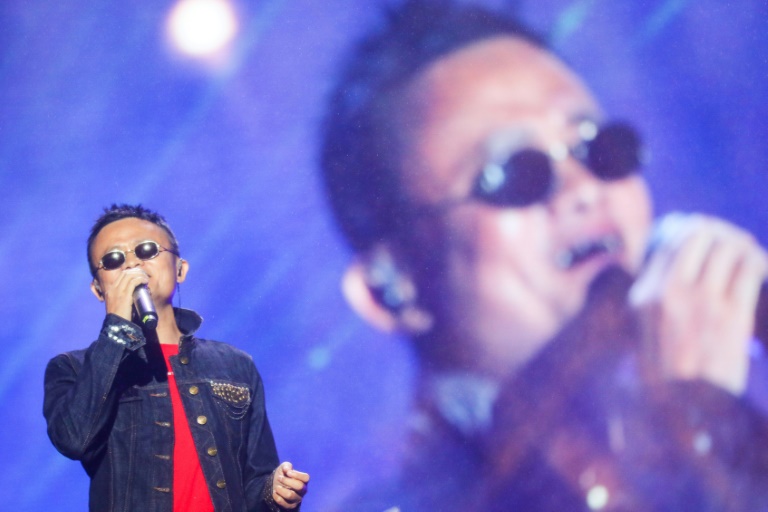Jack Ma, the unconventional billionaire founder of tech giant Alibaba and the totem of China’s entrepreneurial brilliance, has stepped out of the limelight since a Communist Party crackdown that chopped back his empire.
The most recognisable face in Asian business, Ma has seen his fortune fall by around half to an estimated $25 billion after authorities pulled what would then have been the world’s biggest-ever IPO in 2020.
Chinese regulators torched the planned listing of Ma’s Ant Group in Hong Kong and Shanghai, and the following year hit Alibaba with a record $2.75 billion fine for alleged unfair practices.
A reshuffle of Ant’s shareholding structure will now see Ma cede control of the fintech giant he founded in 2014.
He will hold just 6.2 percent of the voting rights as the company moves to ensure “no shareholder, alone or jointly with other parties, will have control over Ant Group”, the firm said in a statement Saturday.
It is the latest humbling of China’s former poster boy for enterprise, who in recent years has retreated from the public eye he once so relished.
A Communist Party member, Ma’s rags-to-riches backstory came to embody a self-confident generation of Chinese entrepreneurs ready to shake up the world.
Charismatic, diminutive and fast-talking, Ma was cash-strapped and working as an English teacher when someone showed him the internet on a 1990s trip to the United States — and he was hooked.
He toyed with several internet-related projects, before convincing a group of friends to give him $60,000 to start a new business in 1999 in China, then still emerging as an economic giant.
Alibaba was the result, an e-commerce behemoth founded from his bedroom in the eastern city of Hangzhou that started an online shopping revolution and grew into a fintech titan.
The company changed the shopping habits of hundreds of millions of Chinese people and catapulted Ma to international stardom.
“The first time I used the internet, I touched on the keyboard and I find, ‘Well, this is something I believe, it is something that is going to change the world and change China’,” Ma once told CNN.
In 2014, Alibaba listed in New York in a world-record $25 billion offering.
Ant is still the world’s largest digital payments platform, with hundreds of millions of monthly users on its Alipay app.
But any future listing appears a long way off, with fears persisting that its personal finance products reach too deeply into the pockets of ordinary Chinese.
– Crossed the line? –
Ma long enjoyed an image as the benevolent and unconventional billionaire.
Sometimes referred to in China as “Father Ma”, he was praised for his self-deprecation — he recounts being rejected by Harvard “10 times”.
He is also known for lighting up company events with song-and-dance appearances as Lady Gaga, Snow White and Michael Jackson.
As his fortune grew, Ma rebranded as a philanthropist, in 2019 retiring from the business to focus on giving.
But he has faced his share of travails over the years in a country where getting rich risks catching the attention of the powerful.
Eyebrows were raised when the state-run People’s Daily newspaper revealed that he is a member of the Communist Party — something Ma has never fully commented on.
He had previously indicated he preferred to keep the state at arm’s length, telling the World Economic Forum in 2007: “My philosophy is to be in love with the government, but never marry them.”
Days before Ant’s IPO was pulled, a swaggering Ma launched a stinging public broadside against Chinese regulators, accusing them of stifling growth.
He is far less outspoken these days, rarely featuring in the headlines save for appearances at charity events and occasional sojourns overseas.

 Business5 months ago
Business5 months ago
 Business4 months ago
Business4 months ago
 People4 months ago
People4 months ago
 Events3 months ago
Events3 months ago
 Events6 months ago
Events6 months ago




